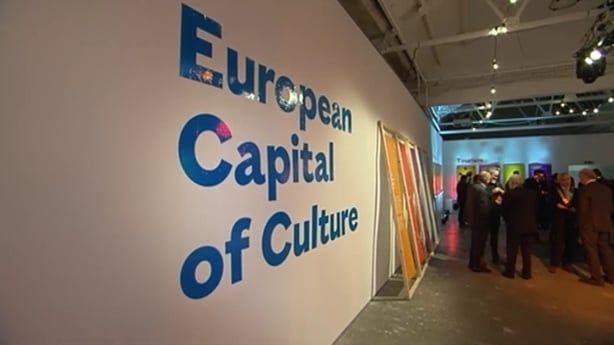Galway's time as European Capital of Culture formally concludes today, marking the end of a difficult and, at times, controversial project.
Beset by planning and funding difficulties in the years leading to the start of the designation, the event was subsequently derailed by the impact of public health restrictions caused by the pandemic.
The onset of Covid-19, just weeks after the official launch in February 2020, meant that most planned events had to be cancelled, with much of the programme reconfigured and presented online.
Minister for Culture Catherine Martin says this was a testament to the creativity and commitment of those involved.
The company set up to oversee the project, Galway 2020, says 600 artists and organisations participated in the 15-month long programme.
But as the curtain falls on the project, there is a feeling of anti-climax locally.

This is largely due to the unavoidable absence of the big events that were intended to captivate audiences around the city and county. But it also stems from a sense of disconnect with many of the cultural organisations commissioned to produce work for the programme.
The focus will now shift to the legacy of the year. While there was never any plan to provide much needed physical infrastructure for the city, it is understood a portion of the €25 million in State funds provided to Galway 2020 has been retained, to support ongoing artistic endeavour.
Part of that legacy also includes numerous projects in towns and villages around Co Galway that took place before and during the year of culture. Organisers say these galvanised communities and succeeded in the aim of bringing the designation to all corners of Co Galway in the last few years.
A virtual handover of the Capital of Culture designation will take place next week, when Galway and Rijeka in Croatia give way to Esch in Luxembourg, Kaunas in Lithuania and Novi Sad in Serbia.
Meanwhile, the Galway Arts Festival has been put back to September, as a result of the ongoing public health restrictions.
Organisers say the 2021 Festival will take place between 28 August and 18 September.






